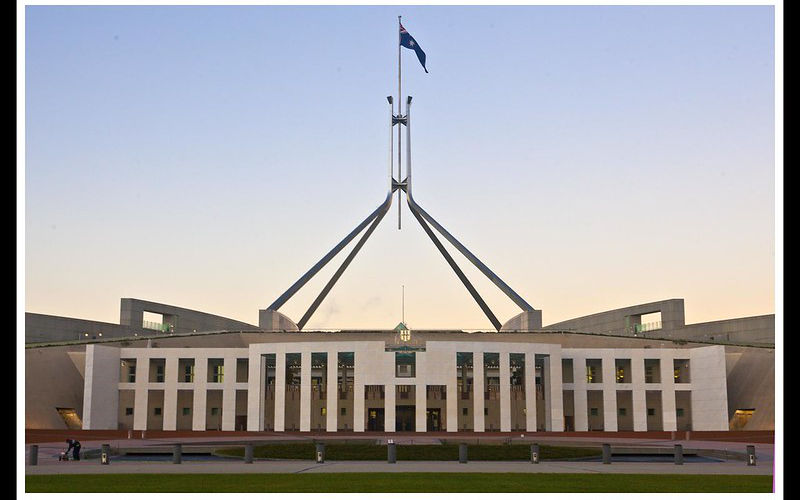MOP(S) Act Amendment Bill: Much to commend but critical omissions too
September 5, 2023
There is a lot more substance to the Members of Parliament (Staff) Amendment Bill now before the Parliament than the Public Service Act Amendment Bill. But, once again, a key reform proposed by the Thodey Review and endorsed by the Robodebt Royal Commission is missing.
The MOP(S) Amendment Bill originates primarily from the Jenkins Review of behaviour in the Parliament House workplace. It includes many important improvements to the employment practices for staff of MPs. There are new employment principles to guide expectations about the workplace and support professionalism. The responsibilities of employing MPs and office-holders as well as the employees are clarified. MPs will be required to engage staff based on their capability to perform the role (important but of course not as strict as the APSs merit principle). Determinations about terms and conditions will be made public. Triggers for automatic termination of employment are clarified (eg on the MP losing their seat) and there will be fairer management of performance with the power to suspend employment to allow proper review processes.
The Bill complements the Parliamentary Workplace Support Service Bill introduced into the Parliament earlier in the year to formally establish the PWSS (an interim PWSS was created in September 2021 via a ministerial circular from the Special Minister of State). The PWSS ensures more professional HR support for MOP(S) Act employees (amongst others) including proper consideration of complaints about staffing issues and behaviour.
The main and surprising omission is a legislated code of conduct for ministerial staff. The opportunity to clarify the respective roles of the different types of MOP(S) Act employees, the APS and the Parliamentary Service has also sadly been missed. These two omissions are linked.
A legislated code of conduct for ministerial staff was firmly recommended by Thodey, a recommendation specifically endorsed by the Robodebt Royal Commission. Instead, it seems we must rely only upon the code issued by the Special Minister of State. There is no code for other MOP(S) Act employees, but apparently the Joint Committee on Parliamentary Standards is proposing a code for all MOP(S) Act employees to be included in employment mechanisms.
As the Bill establishes a much better framework for classifying the different employees under the Act, it should not have been difficult to draft appropriate codes of conduct drawing on the existing unlegislated code for ministerial staff.
There will be three types of MOP(S) Act employees:
- Electorate employees (who are in effect part of the legislative arm of government);
- Personal employees- Ministerial (who are in effect part of the executive arm); and
- Personal employees non-Ministerial, staff of office-holders (best considered as belonging to the legislative arm).
Many provisions in the existing ministerial code should apply to all these employees. For example, behave honestly and with integrity in the course of their employment and act with care and diligence in the performance of their duties. These could easily be incorporated into the Act as a code for everyone.
The Act could then have supplementary provisions for personal employees-Ministerial drawn directly from the existing code for ministerial staff. For example, recognise that ministerial staff are employed in line with Westminster principles and are accountable to their Minister, acknowledge that ministerial staff do not have the power to direct APS employees in their own right and that APS employees are not subject to direction, and recognise that executive decisions are the preserve of Ministers and public servants and not ministerial staff acting in their own right.
Even better would be, in addition, to include articulated values in the MOP(S) Act that correspond to those in the Public Service Act and the Parliamentary Service Act, helping to clarify both common expectations and distinct roles and responsibilities.
Again, there could be one set of values for all MOP(S) Act employees. Working on the values now in the Public Service Act, they might include committed to service with a focus on the Australian public, the employing MP and the MPs constituents (not the Government), ethical (being trustworthy and acting with integrity), respectful and accountable (through the employing MP).
For ministerial staff, there might be an additional provision reflecting their role in the executive arm of government and their accountability through the system of Ministerial responsibility.
(The more comprehensive review of the APS Values that I have previously recommended might lead to slightly different formulations to the above for MOP(S) Act employees, highlighting both common and distinct roles and responsibilities, merit, impartiality and non-partisanship being core Westminster values for the APS that are not required of MOP(S) Act employees.)
Unfortunately, the Bills distinction between employees in the legislative arm and those in the executive is not followed through in other provisions. In particular, the Bill explicitly authorises the Prime Minister to determine the resources for MPs including their electorate staff. There is no role for the Presiding Officers (the Speaker of the House and the President of the Senate) or the new informal Parliamentary Leadership Taskforce established after the Jenkins Review. Other parliaments have wrested such powers away from executive government.
This blurring of the two arms of government and giving excessive power to the executive is also apparent in the PWSS Bill, despite that Bills important provisions. Surprisingly, the PWSS is to be formally created as a statutory authority with staffing under the Public Service Act not the Parliamentary Service Act. Accountability therefore is through Ministers. There is no role for the Parliamentary Service Commissioner or the Presiding Officers.
As my colleague and a former senior officer in the Parliamentary Service, Val Barrett, in Parliament: A Question of Management (ANU Press, 2022) has argued, we need to consider the establishment of a Parliamentary Commission that would formalise the role and powers of the post-Jenkins Parliamentary Leadership Taskforce drawing on recent developments in the UK and elsewhere.
First published in THE MANDARIN September 4, 2023

